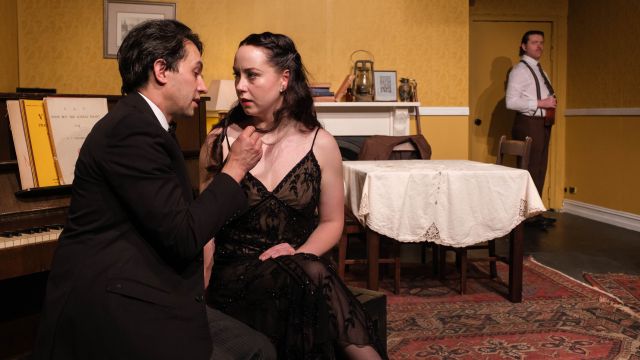The Dazzle
“Post Covid” Sydney is seeing some new, interesting and innovative arts venues. Meraki Arts Bar on busy Oxford Street is one of them. True to its name, it’s all about the arts. There’s an exhibition of art works on the ground floor, music on the first floor, and Corvus Arts production of The Dazzle tucked on the second floor. Every floor has its own bar, the décor is charming, and the pies and chips they offer are very ‘select’!
It's a great initiative. A central location. A welcoming atmosphere. Small intimate performance spaces, ideal for a play such as The Dazzle where the audience is drawn inextricably into the strange relationship between two brothers and a rich, rebellious woman.
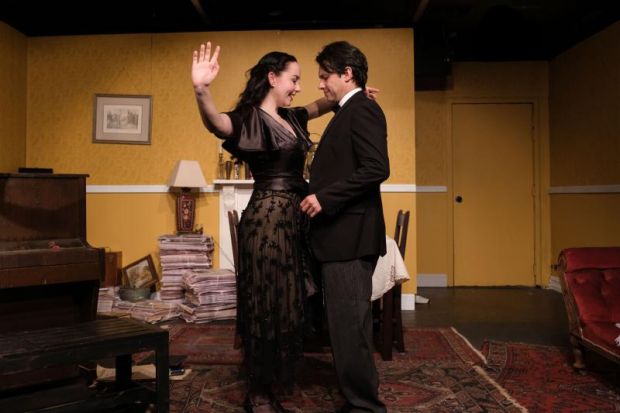
The Dazzle is loosely based on the ‘legend’ of the Collyer brothers who lived as recluses from the 1930s to 1947 in New York brownstone that, at their deaths, contained over 120 tons of collected rubbish and newspapers.
Greenberg’s story makes Langley Collyer a concert pianist, his brother Homer an Admiralty lawyer who has retired to tend his brother’s obsessive traits. As the play opens, Langley is fixated on the final note of his recital piece, Milly is fixated on Langley, and Homer is exasperated with their fixation! The atmosphere is tense, troubled. There is a strange lack of trust but also needy dependence between the brothers. Milly is oddly aware of this and plays to it bizarrely.
Using all the features of theatre of the absurd – pauses, repetition, dada-istic illogic, unfinished sentences – Greenberg’s characters exist in a self-created vacuum that becomes as fraught and oppressive as the collected rubbish filled that surrounds them.
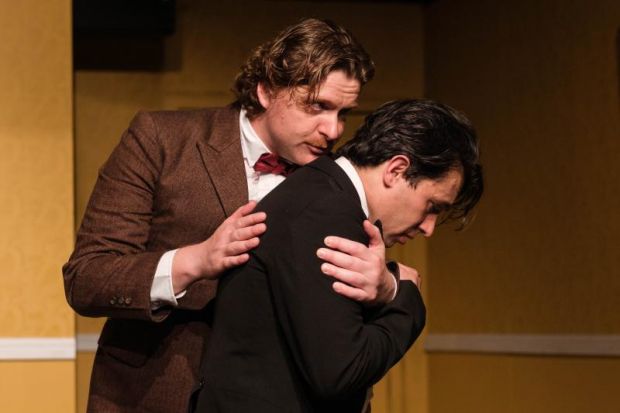
Director Jane Angharad knows her play and has researched the possible frailties and psychological quirks of the characters carefully with her cast, then placed them on a set (Aloma Barnes) that is crowded with furniture, the piano and increasingly extraneous rubbish. Her blocking accentuates the distress of the characters, their anxieties, their disintegrating self-control.
Steve Corner, Alec Ebert & Meg Hyeronimus find all of that in performances that are as tightly contained as the script itself. It’s there in contorted faces, fixed eyes, clenched fingers, tense closeness, forced distance. Yet they are connected, reliant, clinging to the little control that remains of their lives.
Ebert finds the fragility of Langley Collyer in a tenseness that almost scary. His tight facial muscles, his incoherent repetition of phrases, his dependence on Homer are an internalised scream for help.
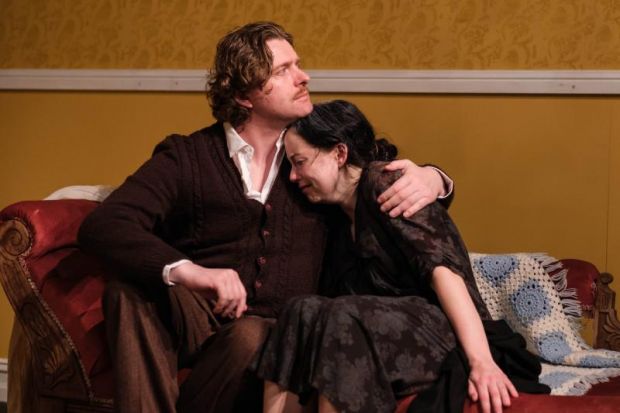
Corner uses the inferences in the script – deferring responsibility, then grasping to take it back, gradually relinquishing responsibility – show Homer’s fear of Lang’s dependence, his realisation that he too is losing control. His gradual deterioration over the 100 minutes of the play is carefully directed and convincingly realistic.
Hyeronimus gives a performance that is beautifully controlled. She uses the proximity of the audience to show her fixed adoration for Langley, her dismissal of Homer, her need to control. She uses her eyes expressively in the opening scenes, but vacantly, feverishly in her final, diminished moments.
Under Angharad’s deft direction, they show how the human spirit can be misshaped and changed by the oppression of obsession and debilitating mental illness.
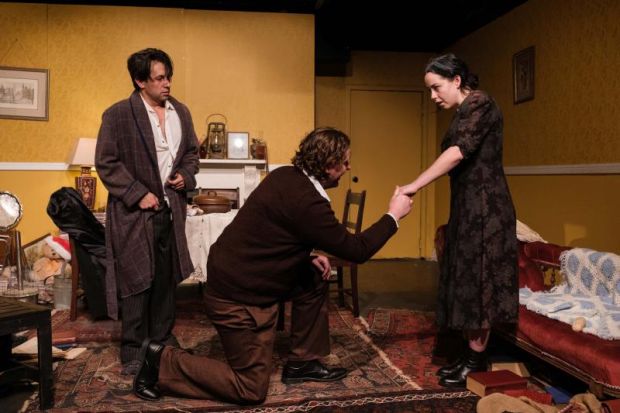
The Meraki Arts Bar theatre space is a perfect venue for this tight little piece of absurdist existentialism – and Jane Angharad and her cast and crew have used it perfectly.
Carol Wimmer
Photographer: Clare Hawley.
Subscribe to our E-Newsletter, buy our latest print edition or find a Performing Arts book at Book Nook.

